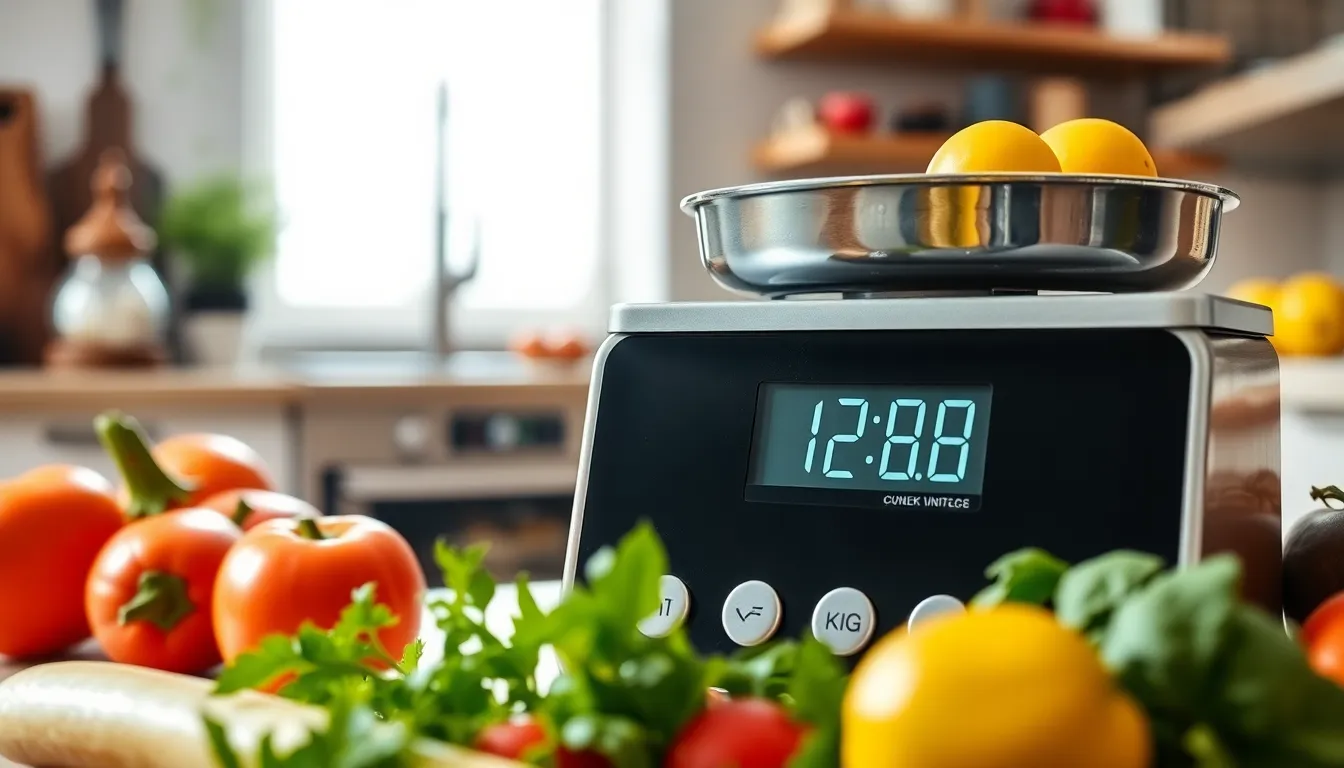When it comes to weights and measurements, the battle between pounds and kilograms can feel like a heavyweight championship match. One minute you’re lifting weights at the gym, and the next, you’re scratching your head over how many kilograms are in a pound. Spoiler alert: it’s not a simple answer, but it’s definitely worth knowing.
Table of Contents
ToggleUnderstanding Pounds and Kilograms
Pounds and kilograms serve as common units of weight. Understanding these measurements aids in various settings, including markets, gyms, and international travel.
Definition of a Pound
A pound represents a unit of weight primarily used in the United States and other countries that follow the imperial system. Specifically, one pound equals approximately 0.453592 kilograms. Used widely in daily conversations, it’s often represented by the symbol “lb.” Additionally, a pound is divisible into 16 ounces, making it a practical measure for both small and large quantities.
Definition of a Kilogram
A kilogram stands as the standard unit of mass in the metric system. Defined as 1,000 grams, it represents a more precise measurement compared to a pound. The symbol for kilogram is “kg.” Commonly, it serves as the basis for scientific and health-related contexts, such as nutrition and body weight. Conversions between kilograms and pounds often arise in global discussions, highlighting the importance of understanding both units.
Conversion Basics

Understanding the difference between pounds and kilograms plays a crucial role in various scenarios. Whether weighing food or tracking fitness progress, knowing how to convert between these units enhances accuracy.
Why Conversion Matters
Converting between pounds and kilograms ensures clarity in weight measurements. Athletes often rely on precise weight data to monitor performance. Tourists frequently encounter weight limits in luggage when traveling internationally. Both scenarios illustrate the importance of mastering conversions. Different regions utilize different systems, creating potential confusion. Familiarity with both units facilitates smooth communication.
The Conversion Factor
The conversion factor between pounds and kilograms is essential for accurate transformations. One pound equals approximately 0.453592 kilograms. Using this value allows users to convert lbs to kg with ease. For example, 10 pounds translates to about 4.54 kilograms. Understanding this relationship empowers individuals to navigate weight specifications confidently. Accurate conversions aid in various activities, from cooking to fitness.
How Many Kg in a Lb
Understanding the conversion between pounds and kilograms is essential for various contexts. One pound equals approximately 0.453592 kilograms, a fact pivotal for accurate weight assessments.
The Exact Conversion
The precise formula for conversion guides weight calculations. One pound converts to exactly 0.453592 kilograms. For simplicity, many round this value to 0.45 when necessary. Grams also relate closely to this conversion, as one kilogram consists of 1,000 grams. Therefore, multiplying pounds by 0.453592 provides the mass in kilograms. Weighing items accurately facilitates better choices in cooking and health-related situations. This precision supports people in achieving fitness goals or complying with travel weight restrictions.
Practical Examples
Examples illustrate the conversion process effectively. For instance, 10 pounds amounts to about 4.54 kilograms. Weighing 30 pounds leads to approximately 13.61 kilograms. Similarly, 50 pounds converts to roughly 22.68 kilograms. Comparing weights using either unit enhances clarity when tracking fitness progress. Using these specific examples helps individuals understand how to convert weights easily, whether at the gym or when managing luggage during travel. Understanding these conversions encourages confidence in weighing various items accurately.
Common Conversion Tools
Conversion tools simplify the process of converting pounds to kilograms and vice versa. These tools offer quick and accurate results without manual calculations.
Online Calculators
Online calculators streamline the conversion process. Users can conveniently input their weight in pounds, receiving an immediate calculation in kilograms. Many websites feature these calculators, making them accessible for anyone needing quick conversions. Features often include options to convert multiple weights at once, enhancing efficiency. Utilizing online tools aids in accuracy, ensuring that individuals track weight changes reliably.
Conversion Charts
Conversion charts provide a visual reference for quick conversions. These charts display common pound-to-kilogram values side-by-side, allowing for easy comparisons. They often present a range of weights, from common items like food portions to fitness measurements. Consulting a conversion chart is beneficial when fast estimations are needed, especially in cooking or fitness settings. Such charts serve as handy resources for anyone managing weight conversions regularly.
Tips for Accurate Conversion
Accurate conversion between pounds and kilograms is essential. Understanding the differences in measurement systems ensures precision in weight management.
Understanding Measurement Systems
Measurement systems vary globally, with pounds primarily used in the US and kilograms prevalent in most other countries. The metric system defines one kilogram as exactly 1,000 grams, providing a straightforward framework for measurement. In contrast, the avoirdupois system defines one pound as 16 ounces, and this distinction affects how weight is communicated in different settings. Customarily, converting pounds into kilograms involves multiplying by the conversion factor of 0.453592. Familiarizing oneself with this conversion factor simplifies calculations. Knowledge of both systems enhances clarity in international conversations about weight.
Avoiding Common Mistakes
Common mistakes often arise during conversions due to miscalculating the factor or confusing units. Always use the correct conversion factor of 0.453592 when translating pounds to kilograms. A simple slip, such as using an incorrect multiplier, leads to significant errors. Additionally, rounding numbers too early can skew results. Retaining precision until the final step fosters greater accuracy. Utilizing online calculators and conversion charts eliminates confusion and ensures reliability. Such tools validate conversions and provide instant results, enhancing confidence in weight tracking, whether for fitness, cooking, or travel.
Understanding the conversion between pounds and kilograms is essential for navigating various aspects of daily life. Whether it’s tracking fitness goals or managing luggage weight while traveling, having a clear grasp of these measurements can make all the difference.
With one pound equating to approximately 0.453592 kilograms, utilizing conversion tools like calculators and charts ensures accuracy. This knowledge not only aids in personal endeavors but also fosters better communication in an increasingly globalized world. By mastering these conversions, individuals can confidently tackle weight-related challenges, making informed decisions in any situation.







